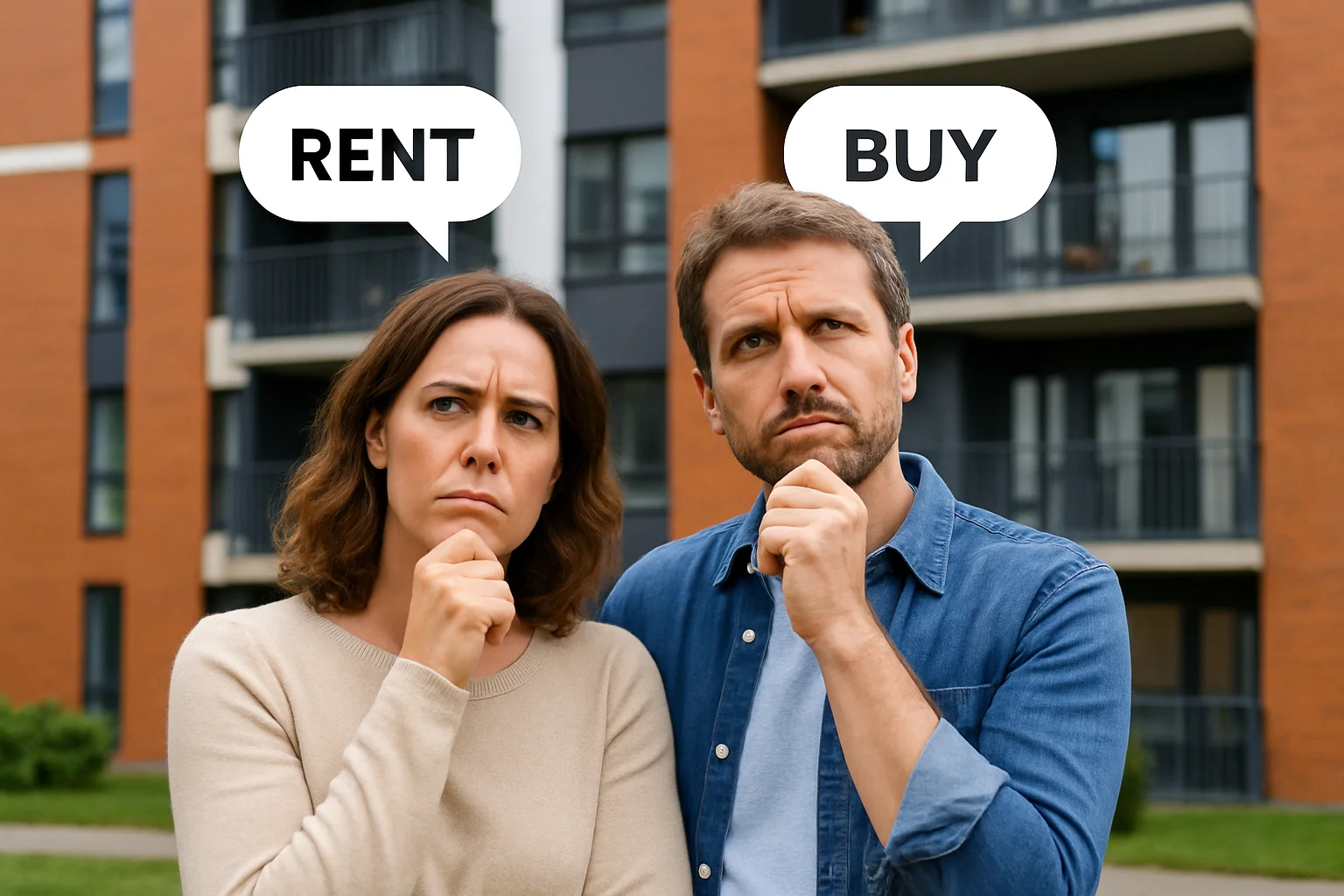Renting and Investing vs. Buying a Home: Which Builds More Wealth Over 5 Years?
In today’s housing market, buyers are facing a challenging combination of high home prices, elevated interest rates, and increased insurance costs. Naturally, many potential buyers are asking: Is it better to rent and invest the difference—or should I buy a home and build equity? Let’s take a closer look at the financial outcome over five years by comparing three popular home loan options with a rental scenario, using realistic assumptions and actual rate disclosures. We'll also factor in the power of compound interest and home appreciation to see how wealth is built through both paths.

🏠 The Home Purchase Scenarios
These scenarios are all based on a $325,000 purchase price and assume the buyer successfully negotiates $10,350 (3%) in seller concessions to help cover closing costs or buy down the interest rate. All examples are based on a 680 credit score.
1. FHA Loan – 3.5% Down
Interest Rate: 5.99%
APR: 6.863%
Loan Amount: $319,113 (includes upfront mortgage insurance premium)
Monthly Payment: $2,739.14
(Includes principal, interest, taxes of $485, homeowner’s insurance of $200, and monthly mortgage insurance of $142.94)Total Cash to Close: $12,917.69
2. Conventional Loan – 3% Down
Interest Rate: 6.875%
APR: 7.822%
Loan Amount: $315,250
Monthly Payment: $2,992.41
(Includes principal, interest, taxes of $485, homeowner’s insurance of $200, and mortgage insurance of $236.44)Total Cash to Close: $12,317.50
3. Conventional Loan – 5% Down
Interest Rate: 6.99%
APR: 7.655%
Loan Amount: $308,750
Monthly Payment: $2,888.85
(Includes principal, interest, taxes of $485, homeowner’s insurance of $200, and mortgage insurance of $151.80)Total Cash to Close: $18,310.62
🏡 Home Appreciation Assumption
We’re assuming a conservative 2% annual appreciation rate over five years. This would increase the home’s estimated value from $325,000 to about $358,000—whether you own it or not.
The real question: who benefits from that appreciation?
💸 What If the Renter Invested Instead?
Let’s say a renter pays $2,300/month, which is less than the cost of homeownership in each scenario. What if the renter invested both the cash to close and the monthly savings at a 9% annual return compounded monthly?
Here’s how the numbers stack up:
| Scenario Compared To | Renter’s Investment Value | Buyer’s Equity | Difference |
|---|---|---|---|
| FHA – 3.5% Down | $53,595.15 | $39,713.26 | + $13,881.89 |
| Conventional – 3% Down | $71,901.39 | $43,576.26 | + $28,325.13 |
| Conventional – 5% Down | $73,415.19 | $50,076.26 | + $23,338.93 |
At face value, the renter who consistently invests their savings wins in all three comparisons—if they are disciplined and market returns hold.
⚠️ The Hidden Risk and Reward of Inflation
Inflation plays a critical role in this debate:
Renters face rising housing costs over time. Even if they’re saving now, future rent hikes could erode their ability to invest.
Homeowners lock in a fixed monthly mortgage payment (excluding taxes and insurance), meaning that over time, inflation actually reduces the real cost of their loan.
And remember: the home is typically appreciating with inflation, not depreciating.
🧠 Final Thoughts
This comparison isn’t about declaring a winner—it’s about understanding your financial options:
✅ Renting and investing can work—if you are disciplined enough to invest consistently and avoid lifestyle inflation.
✅ Buying builds wealth through home appreciation, mortgage paydown, and shelter stability—especially valuable over the long term.
So ask yourself:
Will you actually invest the savings each month?
Are you ready to be a homeowner and stay in one place for at least 5 years?
Do you value flexibility or ownership more?
Either path can be smart with the right mindset.
While renting and investing can yield strong financial results on paper, there are some important realities to consider:
✅ Buyers own a physical asset—a home that could be worth about $358,000 after 5 years.
✅ Renters do not, regardless of how much they invest.
✅ Equity builds automatically for homeowners through mortgage paydown and appreciation.
✅ Renters must manually save and invest, and stay consistent, which can be challenging for many.
In the end, this isn’t just about numbers—it’s about goals, lifestyle, and long-term stability.
If you're considering homeownership and want a personalized breakdown of your options, I’m here to help.
Purchase a Home
Whether you're buying your first home or your dream home, we have a mortgage solution for you. Get your custom rate quote today.
Apply Today
Our secure application is a few quick questions that takes about 7-10 minutes to complete and is required for a “Pre-Approval”. Get started today!